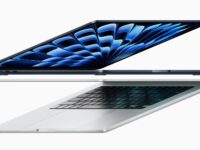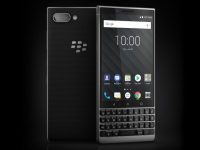Will the BlackBerry brand even be around in five years? From a surface standpoint, the prospect might look grim. It has been a tough couple of years for RIM. The former king of the smartphone realm has fallen far, and is now hanging on as the No. 3 smartphone platform, behind iPhone and Android. Worse yet, bad news seems to lurk around every corner: tablet sales have been poor, and the new BlackBerry 7 smartphones haven’t performed well in the market. This might point to doom, but RIM still has a fighting chance to reestablish its reputation. If the last few months is any indication, it appears they are prepared to do just that.
Here are a few indicators that RIM understands that it needs to take a new direction, and that it will take this new direction to rediscover its former glory.
PlayBook tablet
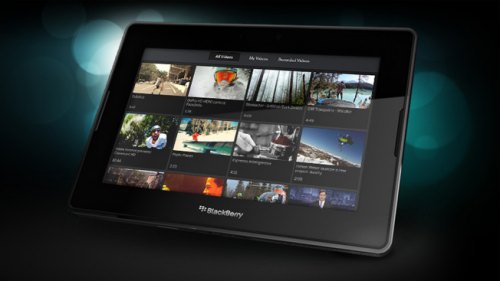
RIM’s transformation actually started in late 2010, when the company announced the BlackBerry PlayBook tablet. In the next few months RIM revealed more details about the tablet, and the more they said the better it looked. It would feature an entirely new operating system and top of the line hardware — essentially a complete departure from previous BlackBerry models. That boded well for RIM at the time.
While it’s true that the PlayBook has received less than rave reviews, that’s not for the things that the device can do. It’s for the things that it cannot do. Namely, the PlayBook lacks native email, calendar, and contacts features, which are staples of the BlackBerry platform. BlackBerry users could gain access to them by tethering their smartphones, but non-BlackBerry users were left in the dark. That led to some poor reviews and lackluster sales.
The issue with the PlayBook is that RIM released it as an incomplete product. If it had those features that it currently lacks, it might have made a bigger splash. That is to say, timing was the biggest killer for the PlayBook. RIM had the idea right, but the execution just wasn’t there. If they can execute better on future releases, they should perform well.
BlackBerry 7 smartphones
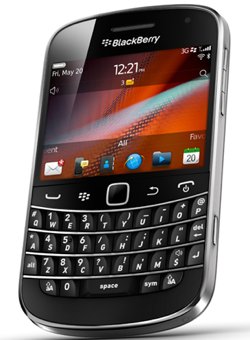
No, the BlackBerry 7 smartphones did not sell well. RIM put some effort into marketing them, but at this point people just aren’t receptive to the same old BlackBerry smartphones. It’s a good thing, then, that the BlackBerry 7 line is different in many ways than RIM’s previous devices. They might look the same, but they pack completely different punches.
The most noticeable upgrade is the processor. Older BlackBerry devices avoided fast processors for the sake of battery life. That caused a number of issues with functionality. The BlackBerry 6 operating system showed this the most. Those 600MHz processors had trouble handling the OS. But with the 1.2GHz processors in the BlackBerry 7 line, speed is not an issue. Everything runs quickly and efficiently. It certainly sends forth a positive sign for the future.
RIM went through plenty of other hardware upgrades, mostly in catering to the consumer market. Every device, save for the Curve line, now has a touchscreen. The BlackBerry Monaco, a/k/a the Torch 9850 and 9860*, provides a huge upgrade over the previous touchscreen device, the Storm. It looks and feels like an Android device, rather than a BlackBerry with a touchscreen. The screens have better resolution, too. Even with software, the BlackBerry 7 operating system provides many improvements over BlackBerry 6.
*Another consumer-focused move RIM should make: end these confusing device name and number combinations. Monaco, the original codename for this device, works because it’s original. Saying Torch, the name of a completely different device, and adding numbers only creates confusion.
Despite the failure, in terms of sales, of BlackBerry 7, the devices hold up. They represent major progress for RIM. That might not have translated, since people seem to be over the BlackBerry line. Still, this bodes well for when RIM reinvents itself. They clearly get that consumers want state of the art hardware and software.
Waiting for the London
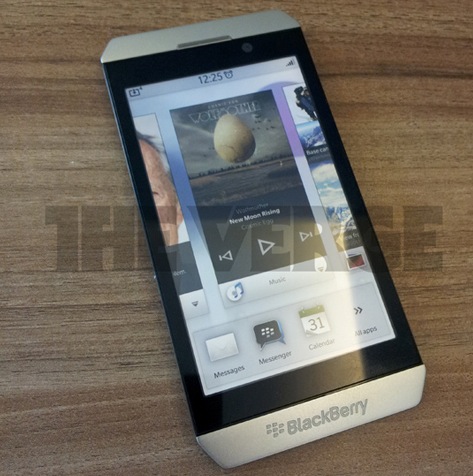
The device that will make or break RIM is the BlackBerry London, the first smartphone that will run its new BBX operating system. It’s a big deal for RIM. A failure likely means the end for them. If they can’t get consumers to buy a new, re-imagined BlackBerry, how are they going to get them to buy anything? Thankfully for RIM, it seems they’re making sure that this release goes right.
From the BlackBerry 7 line they learned the value of superb hardware. The BlackBerry London will feature a dual-core processor and and will sport the same screen resolution as the BlackBerry PlayBook. That is, it will rank with the top smartphones on the market in terms of hardware. If RIM didn’t have that at least, they’d be sunk. There might be a market for devices with lesser hardware, but that’s never been RIM’s forte.
From the PlayBook they learned the value of intuitive software. For years the operating system has been RIM’s bugaboo. People routinely complained about the BlackBerry OS, even with version 5.0. RIM answered those calls with BlackBerry 6 and eventually BlackBerry 7, but they didn’t get the job done. They were improvements for sure, but they were still the same old OS. By using the PlayBook OS, RIM is starting over with the London. It should be easier for developers to make apps, and easier for customers to use them. The result should rival the top smartphone platforms.
Most importantly, RIM learned about execution. Original reports had RIM releasing its first BBX device in the first quarter of 2012. Now those reports name a third quarter release. This might seem disappointing to some, but it’s for the best. RIM knows that it must strike it big with the London. Releasing a buggy or incomplete device just won’t do. They clearly recognize this, and are taking their time.
All their eggs might be in one basket, but RIM has taken care in making sure that the basket is full of promise. The company is taking its time to develop the very best smartphone it can. The result figures to dazzle the industry. Anything less would be unacceptable.
Joe Pawlikowski is the editor of BBGeeks, a site dedicated to helping BlackBerry users get the most out of their devices.

